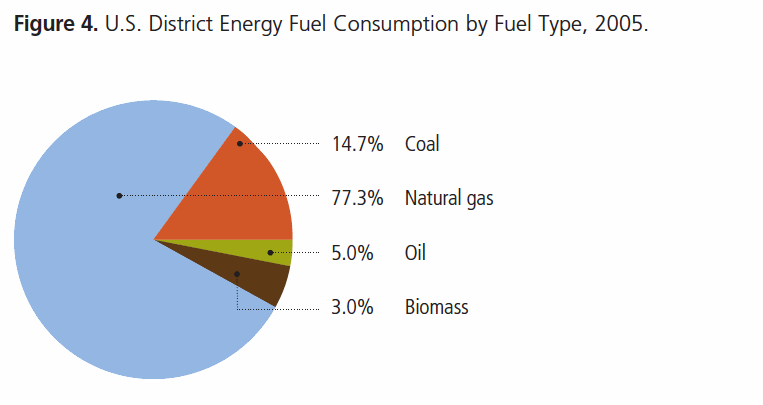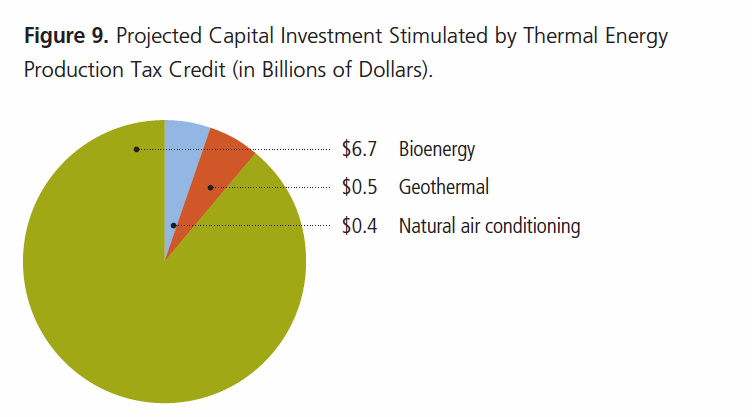INTERNATIONAL DISTRICT ENERGY ASSOCIATION (IDEA)
Why the Act Is Important
Even if a U.S. climate bill is passed in 2010, it is likely to be many years before a cap-and-trade system has an impact on energy use. With continued uncertainties regarding U.S. climate legislation, it is now more essential than ever that the U.S. implements other policies that move us toward reduced fossil fuel consumption and lower greenhouse gas emissions. The Thermal Renewable Energy and Efficiency Act of 2010 will stimulate increased use of renewable energy sources to heat and cool buildings throughout the country.
Thermal energy must be a key part of near-term energy and environmental policy. Thermal energy is an essential, but often overlooked, part of the U.S. energy picture. Of the total primary energy consumed in 2005, 31 quadrillion Btu (quads), representing 31 percent, was used for heating and cooling buildings and industrial processes (fig. 1). Thermal energy is the key to unlocking a wide range of opportunities for reducing greenhouse gas emissions, including renewable thermal energy sources as well as combined heat and power and other energy-efficient technologies.
Examples of use of renewable thermal energy resources to reduce greenhouse gas emissions include the following:
• Seattle Steam Co. found that directly producing heat with its new biomass heating plant was the most feasible approach to making productive use of waste wood, given specific pricing and contractual issues with the power utility.
• District heating serving the Oregon Institute of Technology uses low temperature geothermal resources to provide a clean, renewable source of campus heat.
• Cornell University constructed a piping system that uses naturally occurring cold lake water for building air conditioning, cutting electricity consumption by 87 percent.
• At the University of California, Los Angeles, landfill gas is used for CHP, producing heating, cooling and power.
Download full version (pdf): Thermal Renewable Energy
About: International District Energy Association (IDEA)
http://districtenergy.org/
“The International District Energy Association (IDEA) is a nonprofit trade association founded in 1909 to facilitate the exchange of information among district energy professionals. IDEA is governed by a 20-member, all-volunteer Board of Directors.”
Tags: fossil fuel, IDEA, International District Energy Association, thermal energy, Thermal Renewable Energy and Efficiency Act of 2010








 RSS Feed
RSS Feed